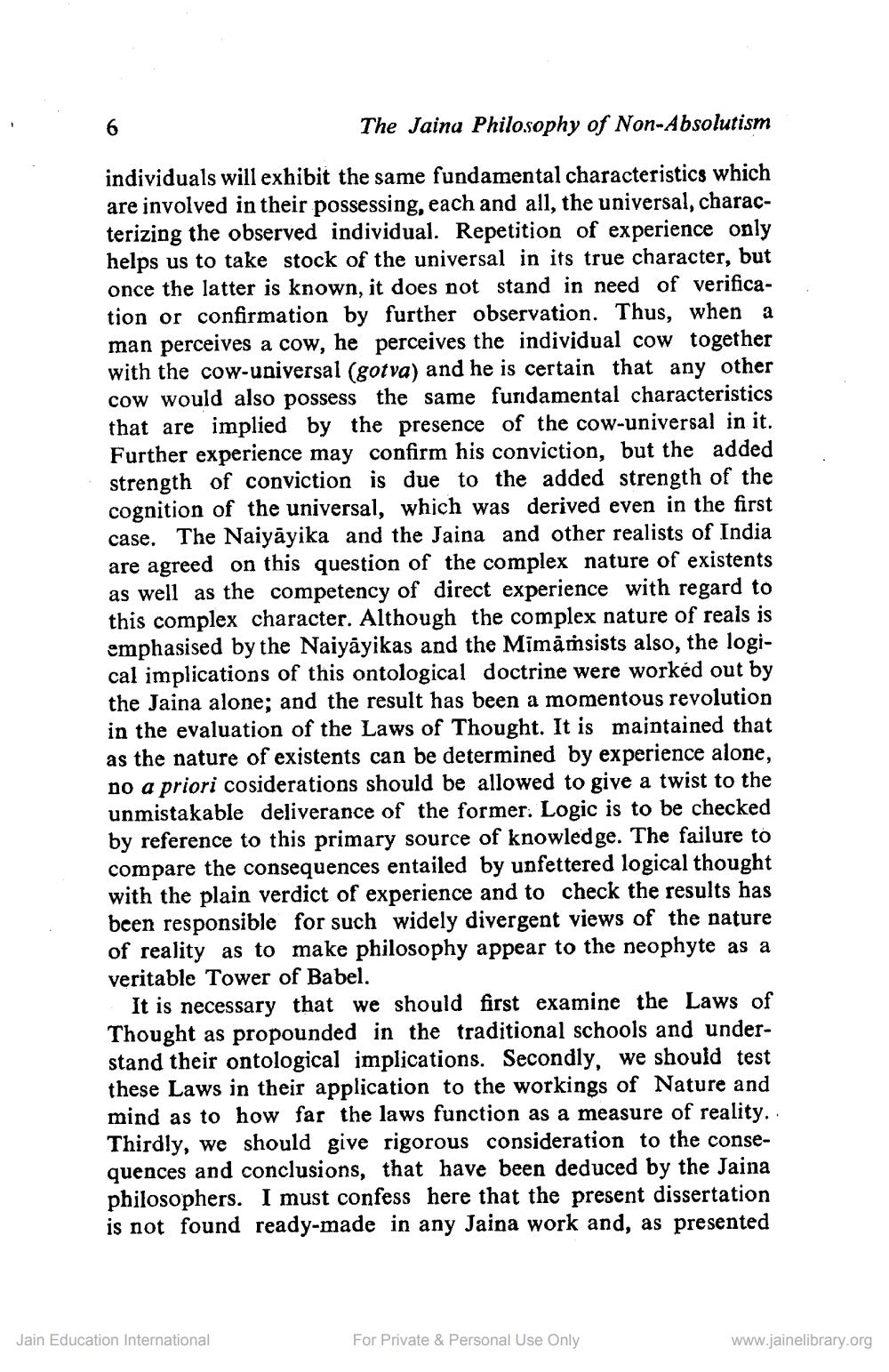________________
The Jaina Philosophy of Non-Absolutism
individuals will exhibit the same fundamental characteristics which are involved in their possessing, each and all, the universal, characterizing the observed individual. Repetition of experience only helps us to take stock of the universal in its true character, but once the latter is known, it does not stand in need of verification or confirmation by further observation. Thus, when a man perceives a cow, he perceives the individual cow together with the cow-universal (gotva) and he is certain that any other Cow would also possess the same fundamental characteristics that are implied by the presence of the cow-universal in it. Further experience may confirm his conviction, but the added strength of conviction is due to the added strength of the cognition of the universal, which was derived even in the first case. The Naiyāyika and the Jaina and other realists of India are agreed on this question of the complex nature of existents as well as the competency of direct experience with regard to this complex character. Although the complex nature of reals is emphasised by the Naiyāyikas and the Mimāṁsists also, the logical implications of this ontological doctrine were worked out by the Jaina alone; and the result has been a momentous revolution in the evaluation of the Laws of Thought. It is maintained that as the nature of existents can be determined by experience alone, no a priori cosiderations should be allowed to give a twist to the unmistakable deliverance of the former. Logic is to be checked by reference to this primary source of knowledge. The failure to compare the consequences entailed by unfettered logical thought with the plain verdict of experience and to check the results has been responsible for such widely divergent views of the nature of reality as to make philosophy appear to the neophyte as a veritable Tower of Babel.
It is necessary that we should first examine the Laws of Thought as propounded in the traditional schools and understand their ontological implications. Secondly, we should test these Laws in their application to the workings of Nature and mind as to how far the laws function as a measure of reality. Thirdly, we should give rigorous consideration to the consequences and conclusions, that have been deduced by the Jaina philosophers. I must confess here that the present dissertation is not found ready-made in any Jaina work and, as presented
Jain Education International
For Private & Personal Use Only
www.jainelibrary.org




